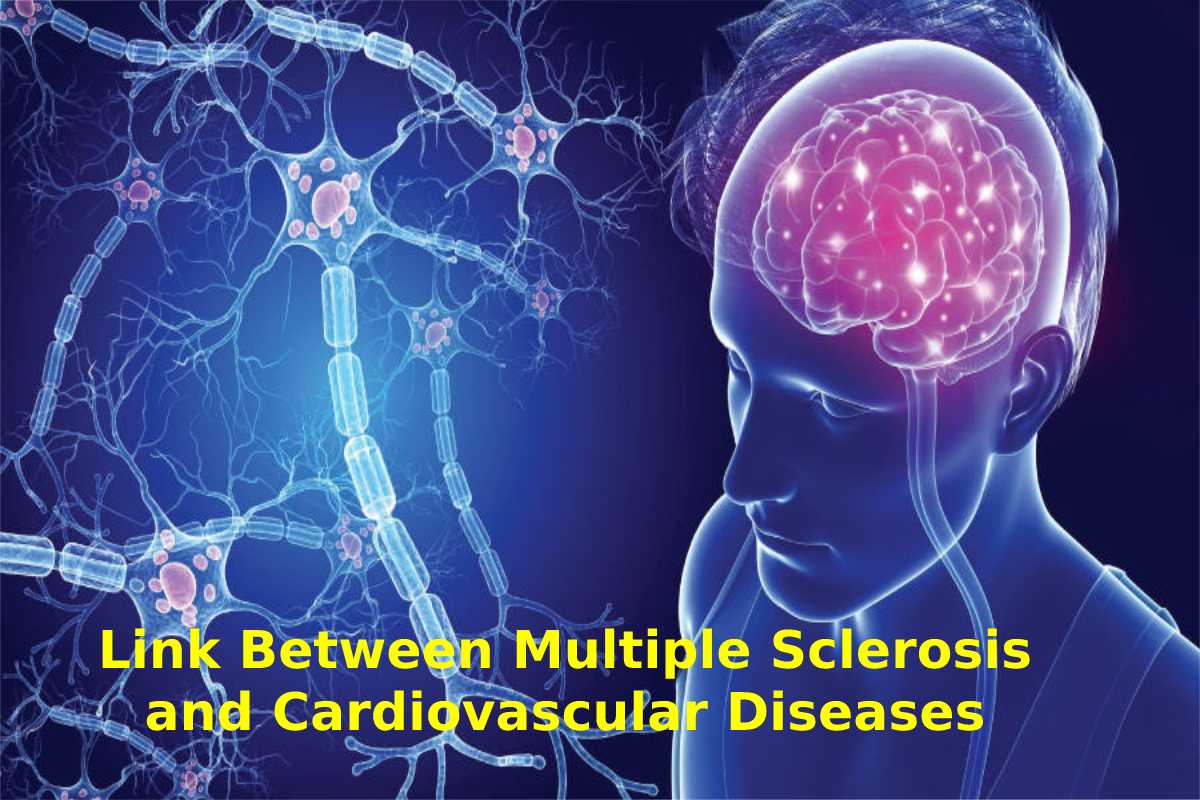Table of Contents
Introduction
Multiple sclerosis is an autoimmune disease in which tissues of the nervous system are damaged, causing symptoms ranging from tingling, numbness, and blurred vision to debilitating muscle weakness. MS can damage the brain and the spinal cord and increase the risk of cardiovascular disease (CVD), including heart and vascular problems.
The Link Between MS and Heart Problems
Several studies have suggested a link between MS and heart disease, and research is ongoing to understand this relationship.
High levels of triglycerides and LDL (low-density lipoprotein, considered “bad”) cholesterol have been associated with worsening MS symptoms and more abnormalities in brain imaging. MS has also been linked to higher rates of strokes, heart attacks, and death from cardiovascular disease.
The aims for this are still being studied. Still, scientists have suggested links between inflammation and heart disease and genetic mutations associated with MS that affect the heart muscle and CVD risk.54 In addition, some risk factors common to MS and heart disease, such as smoking and obesity, may contribute to these results.
The Role of Medical Imaging and PACS Systems
For patients with multiple sclerosis, accurate and timely medical imaging is critical in tracking disease progression and detecting cardiovascular complications. Modern PACS (Picture Archiving and Communication Systems) streamline this process by allowing physicians to securely store, access, and share imaging data across healthcare networks. These systems play an essential role in multidisciplinary care, helping neurologists and cardiologists collaborate effectively.
Cloud-based solutions like Studycast simplify this collaboration even further by integrating diagnostic imaging workflows into one platform. It enables doctors to access and interpret scans remotely, ensuring faster decision-making and continuous monitoring for patients managing chronic conditions such as MS.
Types of MS-Related Cardiovascular Diseases
Multiple sclerosis has been associate with the following types of CVD:54
- Heart attack
- stroke
- Peripheral vascular disease (slow and progressive circulatory disorder)
- heart defect
- cardiac imaging abnormalities
Recognize the Symptoms of Multiple Sclerosis
Recognizing the symptoms of cardiovascular disease is essential, especially for those at higher risk.
- Symptoms of a heart attack can contain chest discomfort, shortness of breath, weakness, dizziness, and nausea.
- Arrhythmias can cause dizziness, fainting, palpitations, and weakness.
- Heart failure can cause shortness of breath, leg swelling, weight gain, fatigue, and also exercise intolerance.
- A stroke can have various symptoms, including sudden weakness on one side of the body or face, slurred speech, and blurred vision.
- The peripheral vascular disease usually presents with claudication, which is discomfort in the leg muscles when walking that is relieve by rest.
Causes of MS and Risk Factors
MS is an autoimmune or “immune-mediated” infection because the immune system launches misguided attacks on healthy tissue (myelin and nerve fibers) in the brain and spinal cord.
Although experts believe MS manifests as a complex interplay between various environmental and genetic factors, the exact cause or “why” behind the disease is still unknown.
Some environmental causes that may play a role in the development of MS include:
- Vitamin D deficiency
- Smoking
- Previous viral infections (e.g., Epstein-Barr virus)
- Child obesity
How to Manage Stress with Multiple Sclerosis?
Because stressful situations (related to your MS or not) are inevitable, learning to manage them in healthy ways is essential to optimizing your quality of life and overall well-being. Here are some examples of stress management strategies you could try.
Deep Breathing
Deep breathing is a relaxation exercise that only takes a few minutes. It can be done practically at any time of the day.
The basic steps include;
- Sit with your shoulders and head against the back of a comfortable chair.
- Keep your hand on your stomach and also inhale slowly and deeply through your nose.
- Let your abdomen expand with air, and after inhaling as much air as possible. Hold your breath for four to five seconds.
- Slowly exhale the air between your lips and also feel your belly drop.
- When you have exhaled all the air, stay still for a minute before repeating the above steps four or five more times.
also read:- how to say kiolopobgofit
